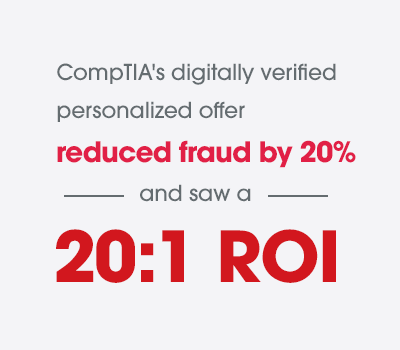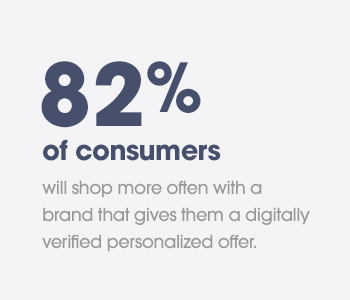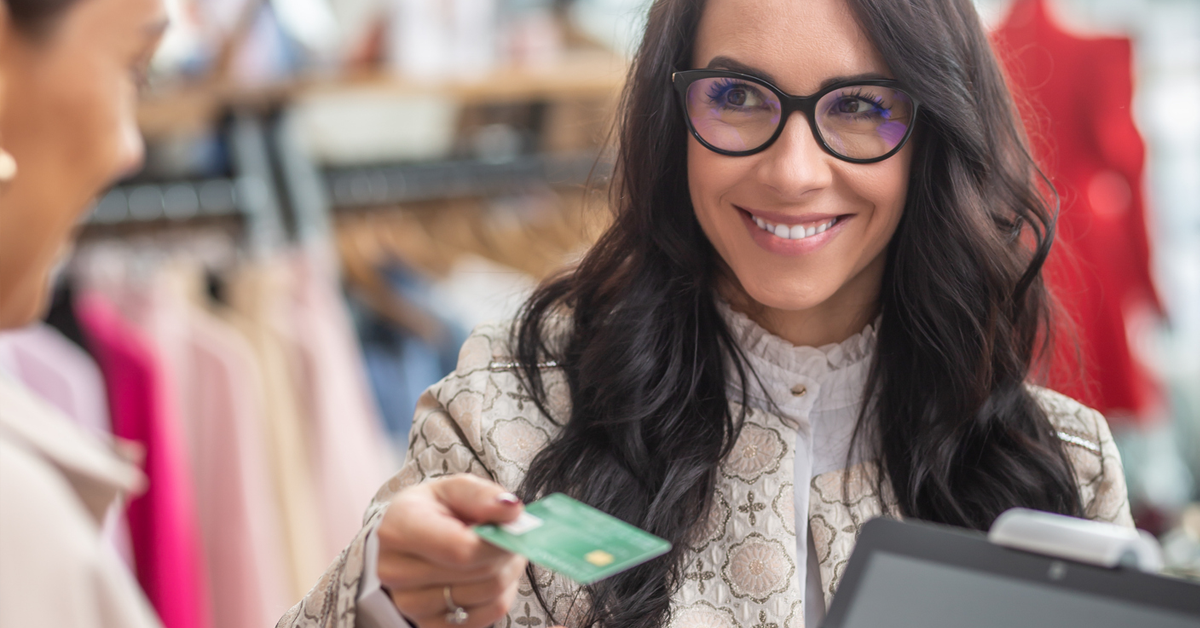Consumers want to be recognized and rewarded by brands they trust. Personalized offers to consumer communities, such as teachers, students, seniors, or the military, deliver this experience but only if the offers are truly exclusive. When a brand doesn’t verify that customers are eligible for an offer, it risks losing money, time, and—most importantly—the regard of their customers.
It’s a common conundrum. Many companies think that just making a personalized offer is enough, then wonder why they’re not seeing better returns. Or they keep their offers small to avoid the possibility of it being exploited by fraudsters. But to get the 6x conversions and 25:1 ROAS that companies like Purple do, you have to go big and fully invest in an identity marketing program.
The good news is the verification process is simple. A company creates a personalized offer for a consumer community, then uses an identity marketing platform to digitally verify that everyone who redeems the offer actually belongs to that group.
And the best news is that when brands take this step, they see big rewards.
6 Benefits of Protecting Your Personalized Offer
When you use an identity marketing platform to verify eligibility for your personalized offer, you:
01 Protect Your Margins
Exploiting an unprotected offer is easy. Fraudsters can easily create fake .edu email addresses and student IDs. And someone looking to create a fake military ID could easily find this company, which claims it’s been supplying fake IDs for 10 years! Employee discounts are also easy to abuse.
This kind of fraud is rampant. For some brands, it’s as high as 35%. But digital verification ensures only the customers you’re targeting can redeem the offer, and that pays off. When CompTIA began using it to secure their personalized offers for students, it reduced fraud by 20% and saw a 20:1 ROI.


02 Collect the Data You Need to Engage Customers
Consumers today want to control their personal data. When you use an identity marketing platform to deliver your offer, customers opt-in to receive it. This consent-based exchange respects their desire for privacy while giving you zero-party data you can use to deepen your relationship with them.
CheapCaribbean is a great example. They used digital verification to launch a program targeting nurses and brought 8,000 new customers into their travel club—a group they can continue to nurture with other campaigns. Along the way, the company also reduced fraud by 36% and saved more than 100 hours of staff time in the process.
03 Increase Offer Appeal
Customers love being digitally verified for a personalized offer because it proves the offer is really exclusive and makes them feel special. Two-thirds of both teachers and the military say a personalized offer that is digitally verified makes them feel valued and inspires them to act. Across all consumer communities, digitally verified personalized offers make 58% of shoppers more likely to buy and motivates nearly half to purchase sooner.
04 Trigger Greater Word-of-Mouth
Consumer communities have strong networks, and when they find a deal that’s truly just for them, they share it broadly. Ninety-six percent of the military would share a personalized offer with others in the military community, and 78% of teachers hear about teacher discounts from their colleagues.
05 Generate Deeper Customer Loyalty
Using an identity marketing platform creates a better user experience because it enables your customers to be verified instantly without ever having to leave your website. It also allows you to seamlessly integrate your offers into your loyalty programs. This shows customers that you value them and their community—not just for a one-time offer, but as an ongoing part of your brand family.
Michaels has done this masterfully.The company ties their teacher, senior, and military offers to their loyalty program, which allows the brand to engage them year-round. And when Lowe’s used digital verification to integrate its military discount with their MyLowe’s program, it doubled the number of in-store trips for the military and saw a 4x increase in their email click-through rates.
This kind of loyalty holds true across all consumer communities. When a brand provides customers with a digitally verified personalized offer, 82% will shop there more often.


06 Instill Brand Trust
Digital verification instills trust, and when it comes to personalized offers, consumers will punish brands that are lax.
According to Kelton Research, 47 million Americans said knowing a brand allowed a personalized offer to be redeemed by shoppers who weren’t eligible for it would negatively impact their brand interactions. Half said they would shop there less often, and one in three would recommend their friends and family shop elsewhere.
This kind of brand trust translates into revenue and loyalty, too. Eighty percent of consumers said trusting a brand to do what is right is a deciding factor in a purchase decision. And 82% said they will continue to buy a brand they trust, even if another brand suddenly becomes hot and trendy.
Providing personalized offers to consumer communities is a powerful way to engage new customers and keep them coming back. And brands that digitally verify their offers will see the greatest returns.







